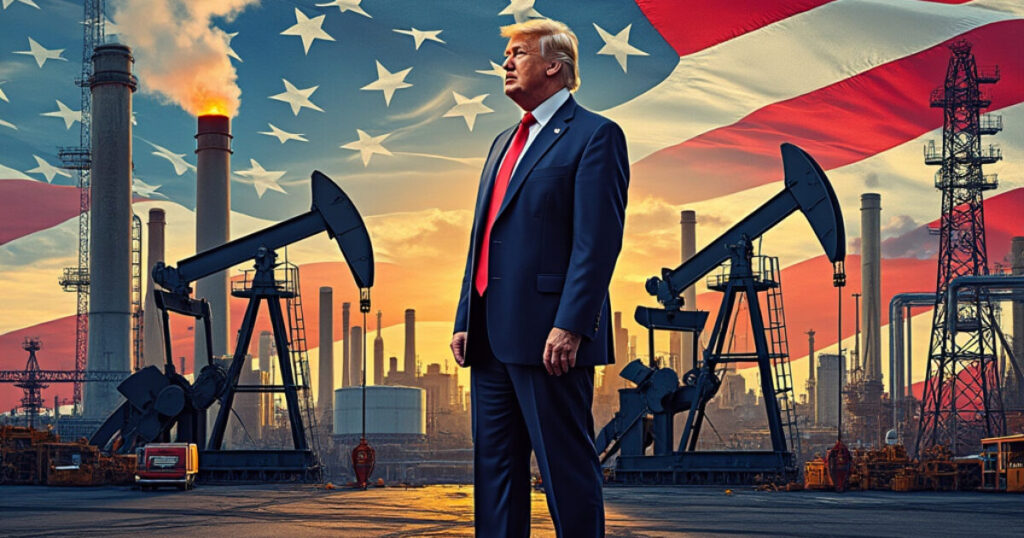America once stood as the undisputed industrial leader of the world, a position that has sadly diminished over recent decades due to a combination of political mismanagement and shifts in global trade practices. The migration of manufacturing jobs from cities like Detroit to lower-cost regions in East Asia and elsewhere began as early as the mid-1980s and has only accelerated since. Following a neoliberal narrative that prioritized free trade and capital expansion, the U.S. has prioritized the relocation of industry to countries with cheaper labor. The argument, underscored by free trade advocates, was that globalization would lead to a greater democracy. However, this ideology often overlooks the grim realities of declining domestic manufacturing and the loss of national sovereignty, effectively turning a blind eye to the economic and social costs involved.
Compounding these issues is the arrival of ideologies that conflate free trade with open borders, prompting the movement of labor without requisite scrutiny. The argument here is weak and fundamentally ideological rather than grounded in economic pragmatism. The flourishing period of mid-twentieth-century America, during which the nation rose to international prominence, was marked by a strong nationalistic sentiment and strict immigration policies. Rather than embracing globalism, the U.S. focused on self-contained industrial ambitions that drew in talent and innovation from within its own borders. As a result, America achieved unprecedented growth, establishing itself as a global superpower by the end of World War II.
In contrast, today’s political climate introduces a host of challenges, including the encroachment of policies centered around Diversity, Equity, and Inclusion (DEI) and Environmental, Social, and Governance (ESG) criteria. These initiatives often divert focus from production and innovation in crucial sectors like oil and gas, which could serve as pillars for economic expansion. Instead, these policies encourage reliance on foreign energy sources, which jeopardizes national security and economic stability. Critics of the current neoliberal paradigm dismiss vital industries as antiquated, envisioning a swift transition to alternative energy without considering the nuanced reality of market adoption.
The invaluable lesson history teaches is that energy sectors go through cycles, and what may seem obsolete today can experience a resurgence tomorrow. This notion applies to oil and gas, which, due to recent innovations like hydraulic fracking, have retaken their place as vital contributors to national economic strength. Economic theories—such as the ‘infant industry hypothesis’—suggest that protective tariffs can foster a competitive environment for domestic industries to flourish. In this context, implementing tariffs can prove beneficial, allowing American companies to compete on a level playing field while propelling economic growth. The trade imbalance coupled with free trade’s overreliance on foreign products demonstrates an urgent need to reconsider strategies that have historically undervalued American-made goods.
However, amidst these economic debates lies an overwhelming consensus on American ingenuity and the intrinsic qualities of its workforce, which, despite myriad challenges, remains unmatched globally. Historical confidence in American industry and innovation should serve as a guiding light to inspire renewed efforts toward economic revitalization. The political landscape, shaped by narratives of decline, stands in stark contrast to a reality where resurgence is not only feasible but inevitable if the constraints imposed by contemporary ideologies are lifted. Donald Trump’s steadfast belief in American potential calls for a return to a spirit of ambition and hard work that once characterized the nation.
As the discourse on American identity and freedom evolves, the essential role of the Constitution emerges as paramount in safeguarding individual liberties and economic opportunity. The current tensions within the American psyche—exemplified by heightened political polarization, calls for censorship, and challenges to foundational rights —threaten the very principles that have enabled innovation and governance throughout history. Stakeholders must confront the existential risks at play and reaffirm their commitment to constitutional freedoms as the bedrock for future growth. The stakes have never been so high, as the nation collectively faces a crucial decision: to harness its resources for transformative innovation or surrender to a governance model that restricts individual liberties and undermines economic vitality.

